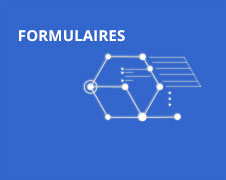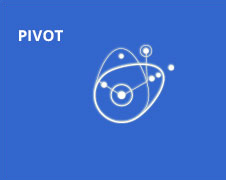Ahmad Hamdan
Plasma dans et en contact avec les liquides : traitement des liquides et synthèse des nanomatériaux
- Professeur agrégé
-
Faculté des arts et des sciences - Département de physique
Complexe des sciences, local B-4423
Portrait
Expertise de recherche
Au Département de Physique de l'Université de Montréal, je suis professeur adjoint en Physique des plasmas appliqués à la synthèse/fonctionnalisation des nanomatériaux et au traitement des liquides.
Je m'intéresse aux plasmas à la pression atmosphérique et aux interactions plasmas-matière, en particulier celle qui est en phase liquide. Dans ce contexte, mes activités de recherche sont subdivisées en trois axes :
- plasma en contact avec un liquide,
- plasma dans un liquide et
- plasma dans un milieu diphasique (par exemple mélange de deux liquides immiscibles ou mélange air-liquide, c.à.d. bulles).
En plus de la compréhension fondamentale de la science de cette nouvelle famille des plasmas, je développe des applications originales, innovantes et prometteuses. Bien que le champ d’application soit extrêmement large, je m’intéresse à court terme à appliquer les plasmas en phase liquide dans la stérilisation des eaux, la synthèse des nanomatériaux et la production des carburants propres.
Bien que le champ de recherche '' plasma-liquide '' est relativement nouveau, les premiers résultats ont montré qu'il y a une très belle physique à explorer et un potentiel énorme pour résoudre des problématiques sérieuses au niveau mondial.
Formation
- 2013 — Doctorat — Physique — Université de Lorraine
- 2010 — Master — Physique — Université Henri Poincaré Nancy I
- 2008 — Licence — Physique — Université Libanaise
Pour en savoir plus…
- Microwave plasma jet in water: characterization and feasibility to wastewater treatment
- Carbon-based nanomaterial synthesis using nanosecond electrical discharges in immiscible layered liquids: n-heptane and water
- Ignition modes of nanosecond discharge with bubbles in distilled water
- Comparison of aluminium nanostructures created by discharges in various dielectric liquids
- Time-resolved imaging of pulsed positive nanosecond discharge on water surface: plasma dots guided by water surface
- Synthesis of core–shell copper–graphite submicronic particles and carbon nano-onions by spark discharges in liquid hydrocarbo
- Transformation of n-heptane using an in-liquid submerged microwave plasma jet of argon
- Electrical and optical characterization of a pulsed discharge in immiscible layered liquids: n-heptane and water with various
Affiliations et responsabilités
Contribution au fonctionnement de l’institution
Activités au sein d’organismes ou d’entités de l’institution
- Membre du Groupe de physique des plasmas
Enseignement et encadrement
Recrutement en recherche
Si vous voulez explorer le domaine plasmas-liquide, en effectuant une maitrise ou un doctorat, n'hésitez pas de me contacter !
Enseignement
Cours siglés (session en cours uniquement)
Programmes
Encadrement
Thèses et mémoires dirigés (dépôt institutionnel Papyrus)
Décharges électriques à l’interface d’une biphase contenant des composés organonickel : stratégies de stabilisation des émulsions
Cycle : Maîtrise
Diplôme obtenu : M. Sc.
Décharges sparks à l’interface de deux liquides non miscibles : diagnostics optiques et émulsification
Cycle : Doctorat
Diplôme obtenu : Ph. D.
Modélisation 2D d’une décharge streamer dans l’air en présence d’une barrière diélectrique : influence de la tension appliquée, de la distance inter-électrode et de la conductivité
Cycle : Maîtrise
Diplôme obtenu : M. Sc.
Modélisation 2D de l’évolution temporelle d’un streamer en interaction avec un liquide diélectrique à pression atmosphérique
Cycle : Maîtrise
Diplôme obtenu : M. Sc.
Étude expérimentale et modélisation de la dynamique spatiotemporelle de décharges nanosecondes impulsionnelles en contact avec l'eau
Cycle : Doctorat
Diplôme obtenu : Ph. D.
Étude statistique de l’influence des paramètres expérimentaux et du champ magnétique sur les décharges sparks dans l’eau déionisée
Cycle : Maîtrise
Diplôme obtenu : M. Sc.
Dégradation en milieu liquide de polystyrène solide par décharges électriques dans l’air en contact avec l’eau
Cycle : Maîtrise
Diplôme obtenu : M. Sc.
Décharge électrique à l'interface de deux liquides : application à la synthèse de nanoparticules
Cycle : Maîtrise
Diplôme obtenu : M. Sc.
Décharge à courant alternatif (AC) dans l’air et en contact avec l’eau : caractérisation fondamentale et application au traitement des eaux
Cycle : Maîtrise
Diplôme obtenu : M. Sc.
Évolution statistique des caractéristiques électriques des décharges Sparks dans les liquides diélectriques
Cycle : Maîtrise
Diplôme obtenu : M. Sc.
Décharges Sparks dans les liquides diélectriques : caractérisation et application à la synthèse de nanoparticules
Cycle : Maîtrise
Diplôme obtenu : M. Sc.
Projets
Projets de recherche
Discharges at/near gasliquid and liquidliquid interfaces: fundamental investigation and application in liquid processing and nanomaterial synthesis
Regroupement québécois sur les matériaux de pointe (RQMP)
Étude des décharges impulsionnelles dans et en contact avec l'eau par spectroscopie et imagerie ultrarapide à rayons X
Étude des décharges impulsionnelles dans et en contact avec l'eau par spectroscopie et imagerie ultrarapide à rayons X
Investigation of the Plasma-droplet interactions: application in nanoparticle synthesis
Nouveaux procédés basés sur un réacteur-injecteur de nanoparticules pour le dépôt par plasma de couches minces nanocomposites multifonctionnelles (RI-plasma)
Infrastructure de recherche sur les plasmas multiphasiques
Traitement de l’eau par plasma pour l’agriculture urbaine
Plasmas in- and in-contact with liquids: fundamental investigations and applications in nanomaterial synthesis and liquid processing
Bulk synthesis of nanomaterials and plasma-based techniques
Supplément COVID-19 CRSNG_Plasmas in and in contact with liquids: fundamental investigations and applications in nanomaterial synthesis and liquid processing
Infrastructure de recherche sur les plasmas multiphasiques
Bulk Synthesis of nanomaterials and plasma-based techniques
Development of combustion-based approaches for nanoparticles synthesis
Rayonnement
Publications et communications
Publications
- Hamdan, A; Diamond, J*; Herrmann, A*. (2021). Dynamics of a pulsed negative nanosecond discharge on water surface and comparison with the positive discharge.Journal of Physics Communications. https://doi.org/10.1088/2399-6528/abe953
- Mohammadi, K., & Hamdan, A. (2021). Spark discharges in liquid heptane in contact with silver nitrate solution: Investigation of the synthesized particles. Plasma Processes and Polymers, 18(10), 2100083. https://doi.org/10.1002/ppap.202100083
- Glad, X*; Gorry, J*; Cha, M S; Hamdan, A. (2021). Synthesis of core–shell copper–graphite submicronic particles and carbon nano-onions by spark discharges in liquid hydrocarbons.Scientific Reports. https://doi.org/10.1038/s41598-021-87222-x
- Merciris, T*; Valensi, F; Hamdan, A. (2021). Synthesis of nickel and cobalt oxide nanoparticles by pulsed under water spark discharges.Journal of Applied Physics. https://doi.org/10.1063/5.0040171
- Hamdan, A; Diamond, J*. (2021). Electrical and optical characterization of a pulsed discharge in immiscible layered liquids: n-heptane and water with various electrical conductivity.Plasma Sources Science and Technology. https://doi.org/10.1088/1361-6595/abfbe8
- Hamdan A, Liu J L, Cha M S. (2021). Transformation of n-heptane using an in-liquid submerged microwave plasma jet of argon.Journal of Applied Physics. https://doi.org/10.1063/5.0036041
- Agati M, Boninelli S, Hamdan A. (2021). Atomic Scale Microscopy unveils the Growth Mechanism of 2D-like CuO Nanoparticle agglomerates produced via Electrical Discharges in Water.Materials Chemistry and Physics. https://doi.org/10.1016/j.matchemphys.2021.124244
- Hamdan, A; Liu, J L. (2021). Scenario of carbon-encapsulated particle synthesis by spark discharges in liquid hydrocarbons.Plasma Processes and Polymers. https://doi.org/10.1002/ppap.202100013
- Hamdan, A; El Abiad, D*; Cha, M S. (2021). Synthesis of silicon and silicon carbide nanoparticles by pulsed electrical discharges in dielectric liquids. Plasma Chemistry and Plasma Processing, 41(6), 1647-1660. https://doi.org/10.1007/s11090-021-10205-3
- Glad X*, Profili J*, Cha M S, Hamdan A. (2020). Synthesis of copper and copper oxide nanomaterials by electrical discharges in water with various electrical conductivities.Journal of Applied Physics. https://doi.org/10.1063/1.5129647
- Hamdan A, Gorry J*, Merciris T*, Margot J. (2020). Electrical characterization of positive and negative pulsed nanosecond discharges in water coupled with timeresolved light detection.Journal of Applied Physics. https://doi.org/10.1063/5.0010387
- Merciris T*, Valensi F, Hamdan A. (2020). Determination of the electrical circuit equivalent to a pulsed discharge in water: assessment of the temporal evolution of electron density and temperature.IEEE trans. plasma science. https://ieeexplore.ieee.org/document/9180000
- Hamdan A, Glad X*, Cha MS. (2020). Synthesis of copper and copper oxide nanomaterials by pulsed electric field in water with various electrical conductivities.Nanomaterials. https://doi.org/10.3390/nano10071347
- Merciris T*, Hamdan A, Dorval A*, Valensi F. (2020). Simplified Spark Pulser for Nanoparticles Generation.IEEE Transactions on Plasma Science. https://ieeexplore.ieee.org/document/9204755
- Hamdan A, Agati M, Boninelli S. (2020). Selective synthesis of 2D mesoporous CuO agglomerates by pulsed spark discharge in water.Plasma Chemistry and Plasma Processing. https://doi.org/10.1007/s11090-020-10126-7
- Hamdan A, Ridani D*, Diamond J*, Daghrir R. (2020). Pulsed nanosecond air discharge in contact with water: Influence of voltage polarity, amplitude, pulse width, and gap distance.Journal of Physics D: Applied Physics. https://doi.org/10.1088/1361-6463/ab8fde
- Hamdan A, Diamond J*, Stafford L. (2020). Time-resolved imaging of pulsed positive nanosecond discharge on water surface: plasma dots guided by water surface.Plasma Sources Science and Technology. https://doi.org/10.1088/1361-6595/abbd87
- Hamdan A, Gagnon C*, Aykul M*, Profili J*. (2019). Characterization of a microwave plasma jet (TIAGO) in-contact with water: Application in degradation of methylene blue dye.Plasma Processes and Polymers. https://doi.org/10.1002/ppap.201900157
- Hamdan A, Profili J*, Cha M S. (2019). Microwave plasma jet in water: effect of water electrical conductivity on plasma characteristics.Plasma Chemistry and Plasma Processing. https://doi.org/10.1007/s11090-019-10034-5
- J Diamond, J Profili, A Hamdan (2019) Characterization of various air plasma discharge modes in contact with water and their effect on the degradation of reactive dyes. Plasma Chem Plasma Process 1-16. https://link.springer.com/article/10.1007/s11090-019-10014-9
- A Hamdan, J L Liu, M S Cha (2018). Microwave plasma jet in water: characterization and feasibility to wastewater treatment. Plasma Chem Plasma Process 1-18. link.springer.com/article/10.1007/s11090-018-9918-y
- A Hamdan, M S Cha (2018). Carbon-based nanomaterial synthesis using nanosecond electrical discharges in immiscible layered liquids: n-heptane and water. Journal of Physics D: Applied Physics 51 244003 (9pp). iopscience.iop.org/article/10.1088/1361-6463/aac46f/pdf
- A Hamdan, H Kabbara, C Noel, J Ghanbaja, A Redjaimia, T Belmonte (2018). Synthesis of two-dimensional lead sheets by spark discharge in liquid nitrogen. Particuology (In Press). (www.sciencedirect.com/science/article/pii/S1674200118300300)
- J-L Liu, H W Park, A Hamdan, M S Cha (2018). In-liquid arc plasma jet and its application to phenol degradation. Journal of Physics D: Applied Physics 51 114005 (9pp) (iopscience.iop.org/article/10.1088/1361-6463/aaada2/meta)
- R.K. Gangwar, A. Hamdan, L. Stafford (2017). Nanoparticle synthesis by high-density plasma sustained in liquid organosilicon precursors. Journal of Applied Physics 122, 243301 (aip.scitation.org/doi/10.1063/1.5006479)
- A Hamdan, M S Cha, R Abdul Halim, D Anjum (2017). Synthesis of SiOC:H nanoparticles by electrical discharge in hexamethyldisilazane and water. Plasma Processes and Polymers 14 (12) (onlinelibrary.wiley.com/doi/10.1002/ppap.201700089/full)
- A Hamdan, H Kabbara, M-A Courty, M S Cha, T Belmonte (2017). Multi-Strands synthesis of carbon-metal nanocomposites by discharges in heptane between two metallic electrodes. Plasma Chem Plasma Process 1-22. (link.springer.com/article/10.1007/s11090-017-9816-8)
- A Hamdan, K Čerņevičs, M S Cha (2017). The effect of electrical conductivity on nanosecond discharges in distilled water and in methanol with argon bubbles. Journal of Physics D: Applied Physics 50 185207 (8pp) (iopscience.iop.org/article/10.1088/1361-6463/aa6969)
- A Hamdan, F Valade, J Margot, F Vidal, J-P Matte (2017). Space and time structure of helium pulsed surface-wave discharges at intermediate pressures (5 - 50 Torr). Plasma Sources Sci. Technol. 26 015001 (10pp). (iopscience.iop.org/article/10.1088/0963-0252/26/1/015001)
- G Al Makdessi, A Hamdan, J Margot, Richard Clergereaux (2017). Measurement of negatively-charged species by laser-induced photodetachment in a magnetically confined low-pressure argon-acetylene plasma. Journal Plasma Sources Science and Technology, 26(8), 085001 (9pp). (iopscience.iop.org/article/10.1088/1361-6595/aa7806/meta)
- A Hamdan, M S Cha (2016). Low-dielectric layer increases nanosecond electric discharges in distilled water. AIP Advances 6, 105112. (scitation.aip.org/content/aip/journal/adva/6/10/10.1063/1.4966589)
- A Hamdan, M S Cha (2016). Nanosecond Discharge in Bubbled Liquid n-Heptane: Effects of Gas Composition and Water Addition. IEEE Trans. Plas. Sci. 4(12), 2988-2994. (ieeexplore.ieee.org/document/7556309/)
- A Hamdan, M Cha (2016). The effects of gaseous bubble composition and gap distance on the characteristics of nanosecond discharges in distilled water. Journal of Physics D: Applied Physics 49, 245203. (iopscience.iop.org/article/10.1088/0022-3727/49/24/245203/pdf)
- A Hamdan, G Makdessi, J Margot (2016). Deposition of a-C:H films by RF magnetized plasma in Ar/C2H2 mixture at very low pressure. Thin Solid Films, 599, 84-97. (www.sciencedirect.com/science/article/pii/S0040609015013073)
- A Hamdan, M Cha (2015). Ignition modes of nanosecond discharge with bubbles in distilled water. Journal of Physics D: Applied Physics 48 (40), 405206. (iopscience.iop.org/article/10.1088/0022-3727/48/40/405206)
- A Hamdan, J Margot, F Vidal, J-P Matte (2015). Characterization of helium surface-wave plasmas at intermediate pressures (5–50 Torr): temperatures and density of metastable atoms in the 23S level. Journal of Physics D: Applied Physics, 48(3), 035202. (iopscience.iop.org/0022-3727/48/3/035202)
- M S Daoud, A Hamdan, J Margot (2015). Influence of surrounding gas, composition and pressure on plasma plume dynamics of nanosecond pulsed laser-induced aluminum plasmas. AIP Advances 5, 107143. (scitation.aip.org/content/aip/journal/adva/5/10/10.1063/1.4935100)
- M S Daoud, A Hamdan, J Margot (2015). Axial- and radial-resolved electron density and excitation temperature of aluminum plasma induced by nanosecond laser: Effect of the ambient gas composition and pressure. AIP Advances 5, 117136. (scitation.aip.org/content/aip/journal/adva/5/11/10.1063/1.4936251)
- A Hamdan, C Noël, J Ghanbaja, T Belmonte (2014). Comparison of aluminium nanostructures created by discharges in various dielectric liquids. Plasma Chemistry and Plasma Processing, 1 – 14. (link.springer.com/article/10.1007/s11090-014-9564-y)
- A Hamdan, I Marinov, A Rousseau, T Belmonte (2014). Microdischarge ignition in liquid heptane. IEEE Transactions on Plasma Science, 42 2616–2617. (ieeexplore.ieee.org/xpls/abs_all.jsp)
- A Hamdan, C Noël, T Belmonte (2014). Synthesis of carbon fibres by electrical discharges in heptane. Materials Letters 135 115–118. (www.sciencedirect.com/science/article/pii/S0167577X14014268)
- A Hamdan, I Marinov, A Rousseau, T Belmonte (2014). Time-resolved imaging of nanosecond-pulsed micro-discharges in heptane, J. Phys. D: Appl. Phys. 47 055203 (8pp). (iopscience.iop.org/0022-3727/47/5/055203)
- T Belmonte, A Hamdan, F Kosior, C Noel, G Henrion (2014). Interaction of discharges with electrode surfaces in dielectric liquids: application to nanoparticles synthesis. J. Phys. D: Appl. Phys. 47 224016. (iopscience.iop.org/0022-3727/47/22/224016)
- J-N Audinot, A Hamdan, P Grysan, Y Fleming, C Noel, F Kosior, G Henrion, T Belmonte (2014). Combined SIMS and AFM study of complex structures of streamers on metallic multi-layers. Surface and Interface Analysis, 46 397–400. (onlinelibrary.wiley.com/doi/10.1002/sia.5635/abstract)
- A Hamdan, C Noël, F Kosior, G Henrion, T Belmonte (2013). Impacts created on various materials by micro-discharges in heptane: influence of the dissipated charge. Journal of Applied Physics 113, 043301. (scitation.aip.org/content/aip/journal/jap/113/4/10.1063/1.4780786)
- A Hamdan, C Noël, F Kosior, G Henrion, T Belmonte (2013). Dynamics of bubbles created by plasma in heptane for micro-gap conditions. J. Acoust. Soc. Am. 134 (2) 991–1000
- A Hamdan, C Noël, J Ghanbaja, S Migot-Choux, T Belmonte (2013). Synthesis of platinum embedded in amorphous carbon by micro-gap discharge in heptane. Materials Chemistry and Physics 142 199-206
- A Hamdan, F Kosior, C Noel, G Henrion, J-N Audinot, T Belmonte (2013). Plasma-surface interaction in heptane. Journal of Applied Physics, 113, 213303
- A Hamdan, J-N Audinot, C Noël, F Kosior, G Henrion, T Belmonte (2013). Interaction of streamer in heptane with metallic multi-layers. Journal of Appl. Surf. Sci. 274 378 – 391
- A Hamdan, J-N Audinot, S Migot-Choux, C Noel, F Kosior, G Henrion, T Belmonte (2013). Interaction of discharges in heptane with carpets of carbon nanotubes. Advanced Engineering Materials, 15 885 – 892
Disciplines
- Physique
- Génie physique
Champ d’expertise
- Physique des plasmas et des décharges électriques
- Décharges électriques dans les liquides et les solides
- Interactions plasma-matière
- Techniques et instrumentation de diagnostics plasmas
- Matériaux nanostructurés : fabrication et caractérisation
- Décharges électriques RF et à hautes fréquences
- Production et chauffage plasma par faisceau laser
Aide en ligne pour votre profil | Nous joindre
Le Répertoire des professeurs est propulsé par les données du ![]() SADVR et est un projet du CENR.
SADVR et est un projet du CENR.


